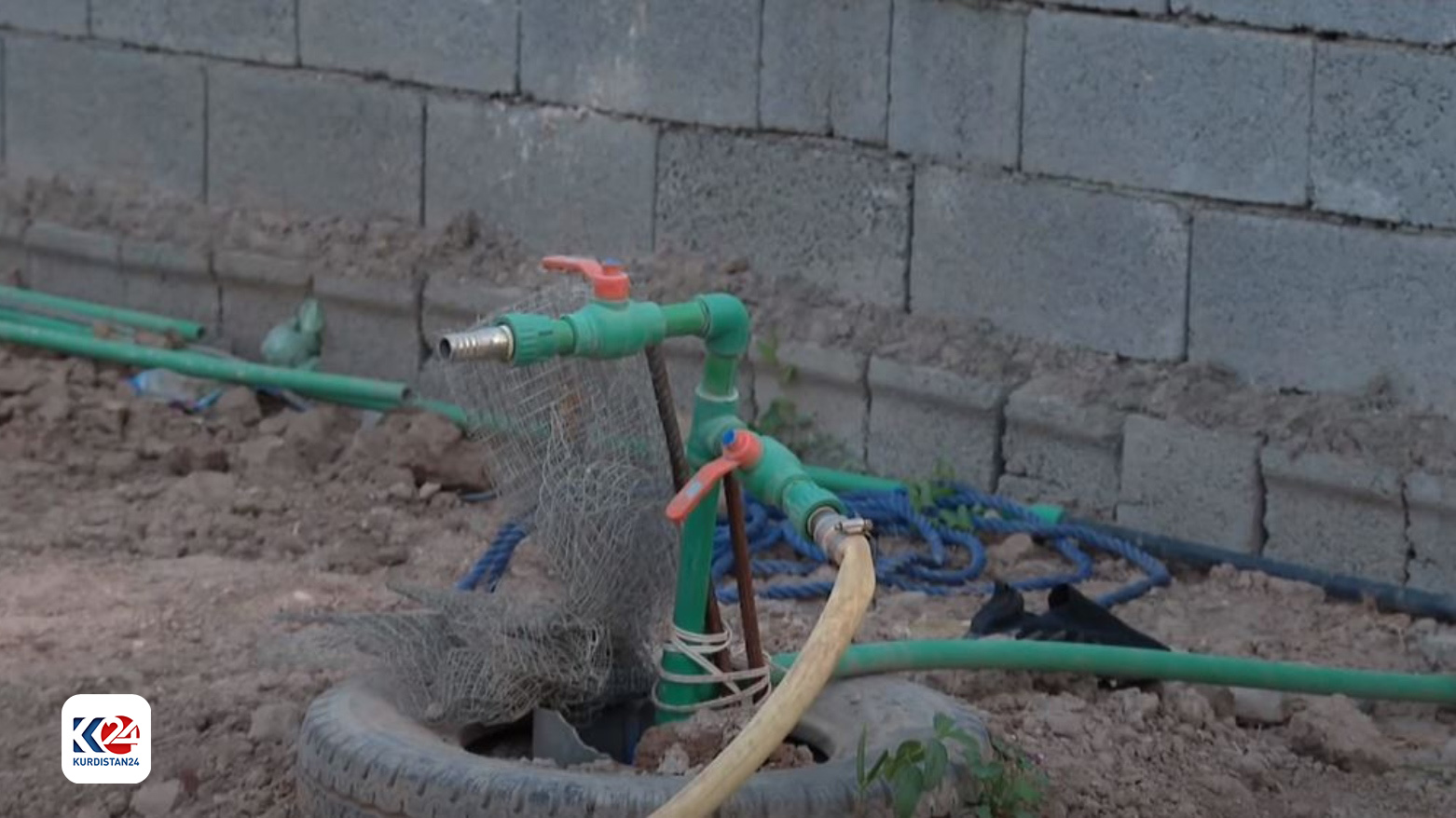Baghdad subdistrict has lacked water for more than 15 years

ERBIL (Kurdistan 24) – The Iraqi capital still suffers from a lack of basic services in many neighborhoods and subdistricts, including the Umm Asafir subdistrict of Baghdad, where residents have been experiencing severe water shortages for more than 15 years.
To remediate the issue, residents have been using wells and water tanks to access clean, drinkable water.
Residents claim that parliamentarians have constantly made empty promises over the years, and they are still waiting for a legitimate solution.
“There is no water available for drinking or agriculture. Every week, we pay for a water tank that can supply five households," Fahim Kamil, a resident of Umm Asafir, told Kurdistan 24.
Moreover, the empty promises have carried over for their electrical needs, as the topic often comes up during parliamentary election campaigns, to no avail.
As another resident stated, "We did not have any life this summer. We brought many representatives to the Iraqi parliament, but we did not see them after the elections, and their promises to provide services were not fulfilled."
Iraq has long been viewed as one of the most corrupt countries in the world, to which the lack of public services is often attributed. Various types of infrastructure, such as roads, bridges, and schools, that need to be renovated or maintained, often remain in their neglected condition.
In 2021, the Iraqi president at the time, Barham Salih, alleged that more than $150 billion in petroleum profits had been smuggled out of the country since the Iraq War began in 2003.
The country has often been decried for its real estate boom, where critics point to the vast sums of illicit profits that are laundered in the industry.
“Prices are high in part because of money laundering and corruption. When it’s hard for people to send their money outside the country, they put it into property here,” Mohammed al-Rubaii, a spokesman for the Baghdad mayoralty, told the Washington Post in June.
